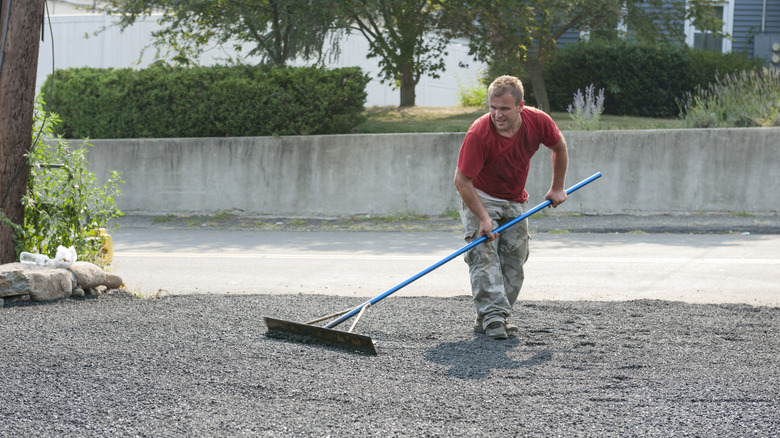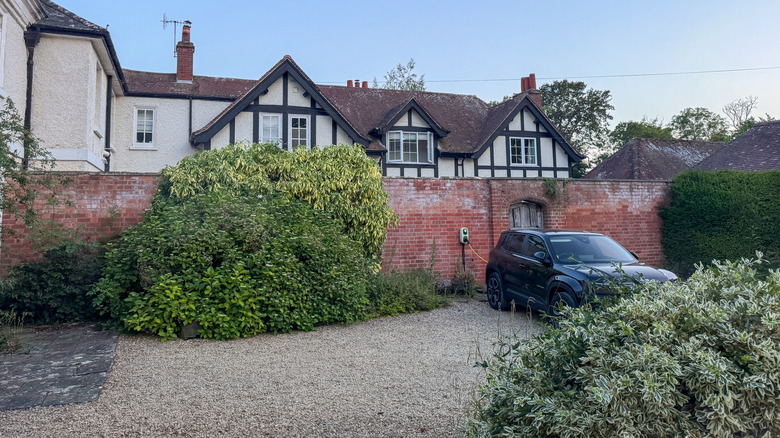Do You Need A Permit To Install A Gravel Driveway? Here's What We Know
That gravel driveway you're dreaming of might seem like a straightforward home improvement project, but before you truck in the gravel, you need to answer an important question: Do you need a permit? The answer, unfortunately, isn't a simple yes or no. Instead, it depends on your local regulations, the specific characteristics of the type of gravel you choose, and the topography of your property. While often a more budget-friendly alternative to asphalt or concrete, gravel drives can have some drawbacks, and their ability to manage stormwater can trigger permit requirements designed to prevent erosion and flooding.
Gravel driveways composed of a high sand and silt content, while providing structural stability for vehicle traffic, significantly reduce porosity. This can lead to runoff issues similar to those seen with impervious or hard surfaces, potentially making your gravel driveway project in need of a permit. Understanding these types of distinctions before you install a gravel driveway can save time and money, making the difference between a smooth-running project and a massive headache.
Navigating local regulations and material choices
The primary factor that determines whether you need a permit for your gravel driveway rests with your local municipality, county, or even your homeowner's association. Zoning ordinances, building codes, and stormwater management regulations vary significantly from one locale to another. Many areas have specific rules concerning impervious surfaces, or areas that prevent water from soaking into the ground, and while gravel is generally considered permeable, its characteristics, such as small versus large gravel, or installing large amounts of it, can be treated differently.
Some jurisdictions may differentiate between different types of loose gravel, or they might have thresholds for the total percentage of a property that can be covered by non-absorbent materials. The kind of gravel plays a surprisingly big role. Gravel with a higher content of fine particles compacts more tightly. This improves stability, reducing the likelihood of ruts and displacement of the gravel, but it substantially reduces the material's ability to allow water to drain through. These types of materials can be categorized in a way that requires a permit, since their drainage characteristics resemble solid surfaces. Before beginning any work, a call to your local planning or public works department is highly recommended to clarify specific requirements and avoid potential fines.
Beyond permits: Managing water and protecting your property
Even if a permit isn't explicitly required for your gravel driveway, the concerns about preventing erosion and flooding are still important. A gravel driveway, despite its permeable nature, can significantly alter water flow on the property. If it's not properly graded or if the gravel has a high fine particle content, rainwater might run off rather than soak through, leading to washouts. This uncontrolled runoff can contribute to sedimentation in nearby storm drains or affect neighboring properties, potentially causing issues that may get the attention of the local authorities.
It's necessary to consider that many communities are increasingly emphasizing sustainable stormwater practices. This means property owners are often expected to manage water on their land to minimize adverse effects on public infrastructure and the environment. Proactively planning for proper drainage, by incorporating French drains or some gravel driveway edging ideas, is not just a good approach but also a responsible way to handle property ownership. Taking these steps can avoid future problems, saving you from potential fines or the need for costly repairs in the future, ultimately addressing the question of why permits are required for gravel driveway installations.


